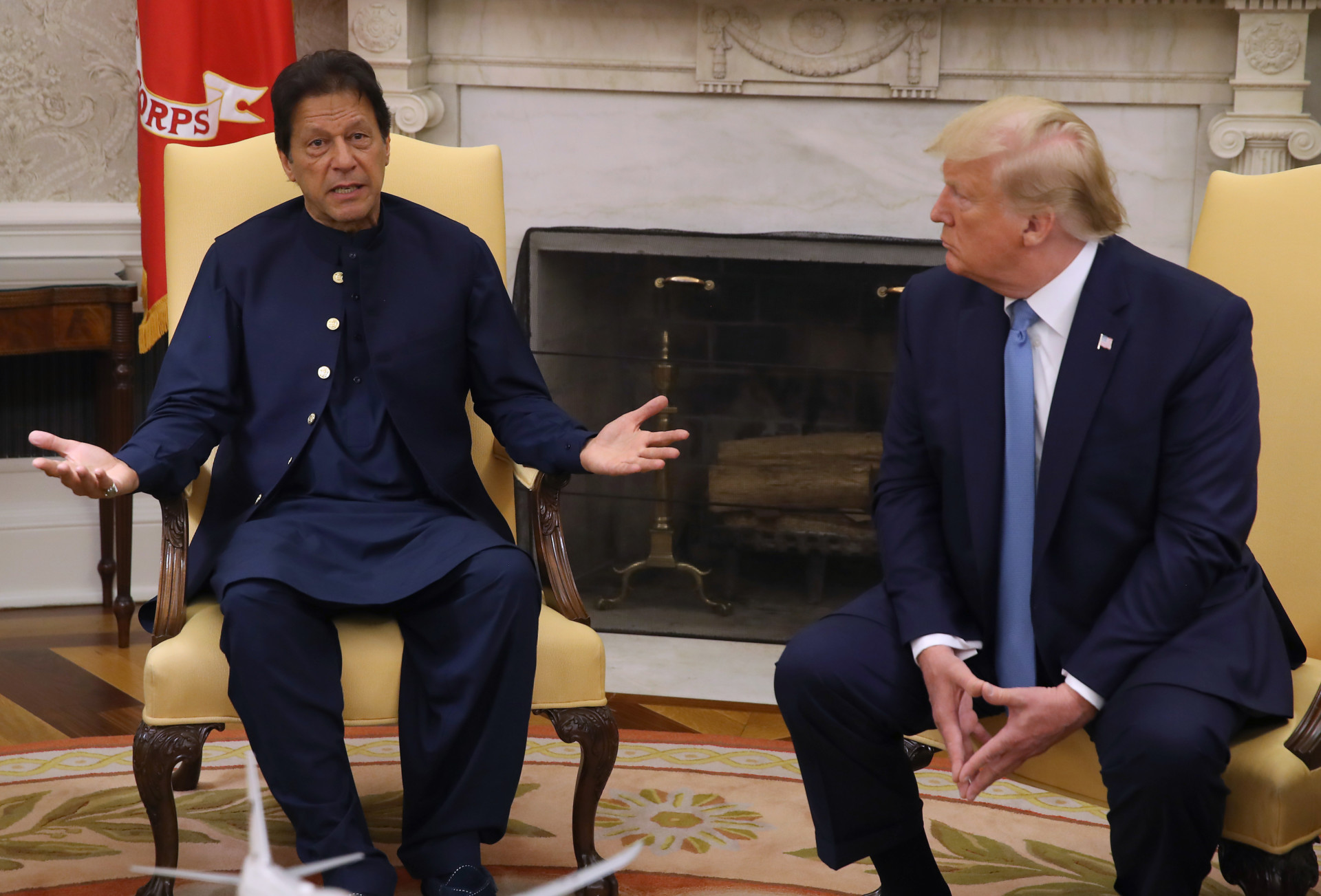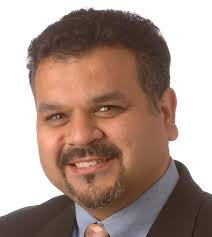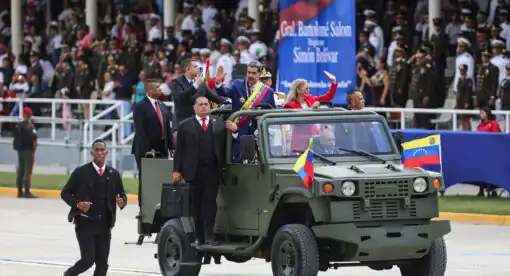Prime Minister Imran Khan’s one-year-old government has been struggling with a perilous situation in that Pakistan is going through its worst economic crisis while relations with the United States also hit rock bottom. Khan’s meeting with U.S. President Donald Trump, however, has set the stage for significant improvement in U.S.-Pakistani relations. For Washington, Islamabad is a critical piece of the U.S. exit strategy from neighboring Afghanistan, and the world’s fifth-largest nation could play a key role in the broader American imperatives with regard to Asia. To achieve both these short and long-term objectives, the Trump administration will need to support Khan’s economic reform agenda.
A Tense Relationship
When Khan, a prominent cricketer-turned-politician, became prime minister last August, relations between the two countries had been tempestuous for nearly a generation. The United States, and the Trump administration in particular, were wary of sending continued aid to Pakistan to quell the surge in the Afghan Taliban insurgency. President Trump’s argument was that the United States was sending huge amounts of aid to the South Asian nation and receiving little to nothing in return. From Prime Minister Khan’s perspective, the United States has been outsourcing its counterterrorism efforts to the lowest bidder and claiming that Pakistan “has done nothing” to help fight global terrorism. A heated exchange in late 2018 led the United States to withhold $800 million of aid to Pakistan. For the first time since 1971, Pakistan postured to turn away from relying on American aid. Pakistan has faced huge costs with regard to the war on terrorism; the human toll alone is enough to understand why Khan is wary of more American money coming into the country.
Given its rocky relationship with the United States, Pakistan has looked to other partners for financial assistance — including investments rather than aid. Because of Pakistan’s increasingly close relationship with China and its prominent place in the China-Pakistan Economic Corridor (CPEC) project — the biggest project in Beijing’s Belt and Road Initiative — Islamabad is trying to balance it relationships with the world’s two economic giants off one another. But Pakistan’s debt to China due to this Initiative is enormous — over $14 billion. Though CPEC is expected to bring in trade opportunities to revitalize the economy, the tangible results are still years away. Thus, Pakistan must try to leverage its role in the region to improve its economic situation.
Similar to how Pakistan’s then-military dictator, Gen. Zia-ul-Haq, used the Soviet-American rivalry to extract the most aid from Washington by feeding into America’s fear of Soviet expansionism, Khan is trying to leverage Pakistan’s border with Afghanistan to his advantage. Trump’s Special Representative for Afghanistan Reconciliation Zalmay Khalilzad has praised Islamabad’s key role in helping nudging the peace talks along — without which the Trump administration’s negotiations with the Taliban would not succeed. However, the Pakistanis don’t have a whole lot of leverage; the economic situation in Islamabad is dire, and the rupee in a freefall since May 2019.
Benefits of a Reset
Khan has an opportunity to reset the U.S.-Pakistan bilateral relations. Moving beyond his country’s status as a beneficiary of American aid, Khan will continue to emphasize the geostrategic importance of the U.S.-Pakistani partnership. Rather than focusing on aid packages often tied to our national security interests, Washington should acknowledge and accentuate Pakistan’s role as a guarantor of regional security, regional development, and a conduit for regional trade relations — from Central Asia to South Asia. Khan, with his Chief of Army Corps Gen. Qamar Javed Bajwa by his side, needs to continue to reassure Trump that as the U.S. troops withdraw from Afghanistan, Pakistan will be committed to maintaining the peace between the Taliban and the civilian government. In his interview with Fox News, Khan noted that involving the Taliban in the Afghan governance was the only way to work towards peace; Khan needs to keep this promise as the mediating country. With Afghanistan and Pakistan cooperating on many fronts, Trump will have a stronger alliance to deal with Iran’s influence in Afghanistan and the broader region.
A refugee-based aid agreement could be a victory for both sides. Pakistan absorbed the bulk of Afghan refugees in the 1980s and has continued to face problems of insurgency since. Many Pakistanis view the Afghan refugee crisis and four decades of war as a main factor in Pakistan’s economic downturn, and if the United States could provide assistance that helps Pakistan better deal with a million plus refugees issue, Afghan-Pakistani relations may become less heated at the porous border.
Forty years of war in Afghanistan has made security a major issue in southwest Asia, and the Trump administration is eager to bring closure to U.S. military mission that began nearly a generation ago. It is time for the United States to fully commit to the strategy of allowing other nations to guarantee regional security rather than involving its own forces. Though these efforts have been underway since the Obama administration, it is high time that the United States make progress towards this balance of power approach to foreign policy. For Washington to complete its withdrawal from Afghanistan, it needs a peace deal between the Afghan government and the Taliban. Since the United States will be leaning heavily on Pakistan to maintain stability in its western neighbor, it is in Washington’ interest to help Pakistan pull back from the current economic abyss Islamabad is staring at.
Pakistan’s sluggish economy has been Khan’s primary focus. Inflation and foreign exchange reserves declining to about $7.3 billion (equal to less than two months worth of exports) are hampering the Pakistani economy. The country’s budget deficit is expected to be approximately 7% of Pakistan’s gross domestic product. To alleviate this massive deficit, in the past six months Khan met with Chinese Premier Xi Jinping, who provided Pakistan $4.6 billion for deposits and commercial loans; Saudi Crown Prince Mohammed bin Salman, who provided $6 billion; UAE Crown Prince Shaikh Mohammed bin Zayed Al-Nahyan, who provided $2 billion; and Qatari Emir Tamim bin Hamad al Thani, who agreed to a $3 billion package.
Why Bolstering Pakistan’s Economy is Important
Helping Pakistan’s economy is not simply necessary for our strategy for Afghanistan; doing so could benefit the United States on a much broader scale. Pakistan is strategically positioned to be a critical player in each of Trump’s key foreign policy objectives: Indo-Pacific strategy, withdrawal from Afghanistan, global diplomatic efforts to counter Iran’s growing regional influence, and aggressive trade wars with China. However, to take on that role, Khan will need to reset the U.S.-Pakistani relationship so that it serves to stabilize Afghanistan and also prioritizes an economic development package for Pakistan’s energy sector, infrastructure, technology, and science and development areas.
The U.S. National Defense Strategy (NDS) emphasized that “Great Power Competition” — namely with Russia and China — will be shaping conflict around the world . According to the NDS document the Russia-China “inter-state strategic competition is now the primary concern in U.S. national security.” Washington, however, by itself, can only go so far in incorporating Pakistan into this strategic doctrine. Islamabad will have to do the heavy-lifting by revising its own strategic outlook by reconfiguring its function and role in this “Great Power Competition” strategy.
Trump can come out ahead in his broader Asia strategy if he can effectively incorporate Pakistan in U.S. efforts to deal with an assertive Iran and perhaps, in some areas, with China. Khan needs to counter skeptics back home who do not have much faith in his ability to steer Pakistan out of its current financial morass, which is something that the Trump administration can make use of vis-a-vis U.S. goals in the region. An agreement on American investments (as opposed to aid) in Pakistan would be a good step toward resetting the bilateral relationship. In this way, Khan can realize some progress toward rectifying his country’s chronic economic woes, and Trump can more forward on a key foreign policy issue that has bedeviled the United States for decades.
Dr. Qamar-ul Huda is Director of the Conflict, Stabilization, and Development program at the Newlines Institute. Prior to joining CGP, Dr. Huda was a Senior Policy Advisor to the U.S. Department of State Secretary’s Office of Religion and Global Affairs. He Tweets at @qbhuda.
Minna Jaffery is the Content Manager at Newlines Institute. Her research focuses on South Asia-Persian Gulf relations, terrorism and ideology, and U.S. national security. She graduated with her M.A. in Middle Eastern, South Asian, and African Studies from Columbia University, and obtained her B.A. in Near Eastern Languages and Civilizations and English from the University of Chicago. She is a member of the Muslim Public Service Network and has previously worked at the Center for American Progress and the Tow Center for Digital Journalism. She Tweets at @MinnaAJaffery.
The views expressed herein are the author’s and do not necessarily reflect those of the Newlines Institute.







